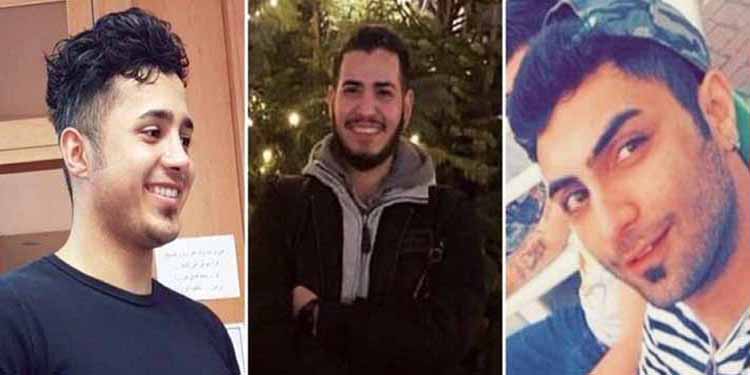Iran-HRM – Iranian authorities have threatened three protesters arrested during the November 2019 protests to remain silent or be executed.

Following the execution of wrestling champion Navid Afkari on Saturday, Mohammad Barae, a judge in Tehran, visited section 5 of the Greater Tehran Penitentiary.
The judge warned three political prisoners Amir Hossein Moradi, Mohammad Rajabi and Saied Tamjidi to remain silent about their conditions. If they leak information about their conditions and refuse to remain silent, their death sentences will be carried out, reports indicate.
It has also been reported that following the execution of Navid Afkari, prison authorities have threatened to death other detainees in section 5 of the Great Tehran Penitentiary who are mostly protesters arrested during the November 2019 uprising, boasting that the international outrage could not save Navid.
An informed source said: “They entered the halls of the section 5 and said: “did you see that none of the media reports and international calls on the news of execution of Navid worked out. We execute whomever we want.”
At least 1,500 protesters were killed during the state crackdown on the protests and more than 12,000 were arrested.
Amirhossein Moradi, Mohammad Rajabi and Saeed Tamjidi – who are reported to be in their 20s – were among thousands of protesters across Iran who took to the streets in November.
After a closed trial in January 2020 they were convicted of offences including sabotage, armed robbery and illegally fleeing the country.
All three were beaten and tortured in detention including with electric shocks and by being hung upside down for extended periods.
They were sentenced to death by Abolghasem Salavati in Branch 15 of the Revolutionary Courts in Tehran. Salavati is known for his long history of issuing death sentences for political prisoners and dissidents. In December 2019, the U.S. Treasury Department sanctioned Salavati for “censorship or other activities that prohibit, limit, or penalize the exercise of freedom of expression or assembly by citizens of Iran.”
On February 18, 2020, the regime’s judiciary spokesperson accused the three of being “riot leaders” who had “set fire to banks and petrol stations during the nationwide protests and had filmed their acts and sent the videos to foreign media”. As a result, they were sentenced to between 11 and 16 years behind bars and flogging on a variety of charges.
In July 2020, the supreme court‘s decision to uphold the sentence unleashed public anger, with the Persian hashtag #do_not_execute used seven million times online.
Following the online campaign one of their lawyers Babak Paknia, said that a request for a retrial had been accepted by the supreme court.
The regime has recently executed two detained protesters, Mostafa Salehi on August 5, and wrestling champion Navid Afkari on September 12, to advance its goal of terrifying a disgruntled society.
 Shabtabnews In this dark night, I have lost my way – Arise from a corner, oh you the star of guidance.
Shabtabnews In this dark night, I have lost my way – Arise from a corner, oh you the star of guidance.


